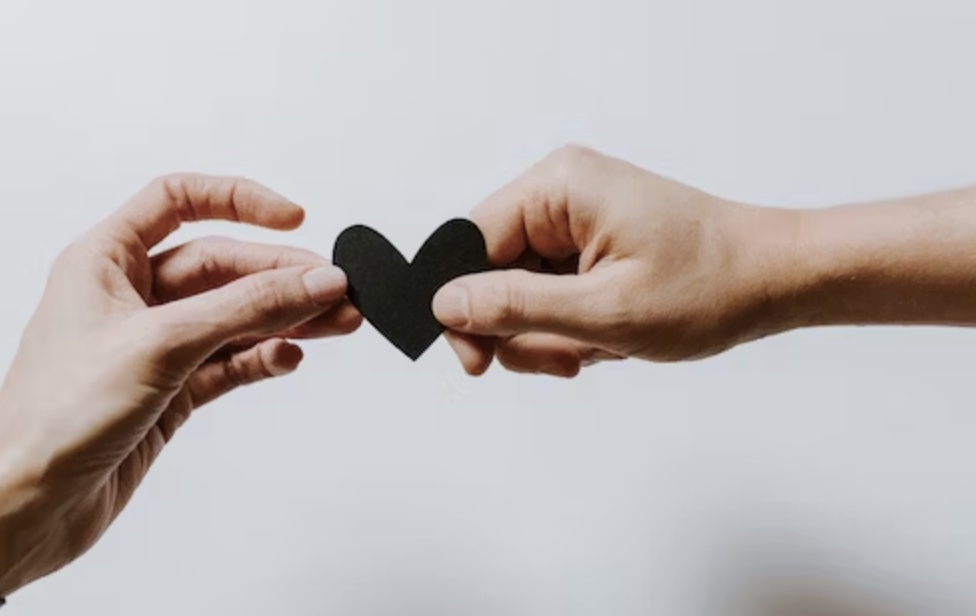The Right Relationships Can Help You Heal

Do you find yourself feeling disconnected from your loved ones? Or are you experiencing a feeling of not being able to communicate how you feel or what you are going through on the inside?
This may just be one of the signs that you are suffering from a type of trauma. We are here to address some tips on how to heal from trauma while in a relationship, and the role a partner plays in helping their significant other through a healing phase.
Keeping healthy relationships is essential for us as social beings, but for trauma survivors – or those who are experiencing or have experienced PTSD, it is sometimes quite difficult to sustain a deep and intimate relationship with anyone, let alone, loved ones.
Check out Certified intimacy educator, Shan Boodram, who teaches people to be more competent & confident, kinda like Dr. Ruth meets Rihanna.
It’s important to be aware that trauma goes beyond the perceived to be big bad events. Most of us may have gone through a type of trauma with or without being aware of it. We overlook or fail to recognize tiny bits of events that may compound to cause an enormous trauma experience because many times it seems it may be tumultuous to even think about.
A few years ago, I damaged one of my favorite shirts while doing laundry. This was a piece of clothing I held dear because I got it from my grandpa before he passed on. After this special garment was damaged I was left feeling incredibly distraught. I could no longer muster enough emotional strength to complete what may be perceived to be a simple task of doing laundry on my own. I was always bombarded with thoughts filled with fear that I destroyed one of the only tangible things from my grandpa. To cope, I had someone else do my laundry. Just until I felt less depressed and afraid.
Every experience relating to trauma, whether severe or minor, is important and should be properly managed no matter the type of event that led to it.
Types of Trauma
Childhood trauma experiences resulting from divorce, abusive parents, being bullied, and so on, can act as a barrier to forming connections while growing as an adult. Trauma can also be a result of the feeling of being ignored or not being seen or heard as a child.
Keep in mind, trauma is not limited to childhood events only. Events like the loss of a loved one, death of a pet, a miscarriage, a serious illness, loss of a job, being an accident victim, or having a near-death experience; just to mention a few, can be traumatic and all of these experiences have a capacity to prick on our fragile emotions.
The experience of trauma can leave its victim with a feeling of insecurity, a perception of impending danger, fear, and overall discomfort. Even if an event does not cause any physical harm, being in a state of fear alone can keep one traumatized.
Moreso, broken relationships or having a failed marriage is one of the leading causes of emotional trauma. Sure, it is well-known many relationships do not go as intended. This may be due to a lack of communication or loss of interest, emotional abuse, manipulation, lack of intimacy, or infidelity can all be culprits in the cause of a marriage or relationship failure.
There are ways to get past cheating in a relationship.
How And Why It Is Important To Heal In A Relationship
Healing is single-handedly an important element to keep a relationship healthy.
If your partner was a victim of a traumatic event, it is beneficial and also a part of your responsibility to see that your partner is in a healthy mental and emotional state.
We will discuss some of the reasons for this and also how the right relationship can help you heal.
Healing Is An Act Of Self-Care
Self-care is beneficial to you and your relationship with others, and a lack of self-care can have a detrimental effect on your well-being and health.
Practicing self-care means you are mindful of what you need as an individual; your body, mind, and soul. When you become more aware of your own needs, it makes it that much easier to be accessible, and for you to provide invaluable support to those you truly care about.
Healing from trauma will make it possible for you to take care of yourself and the positives of this will become evident in your relationship.
Healing Helps To Foster Intimacy In A Relationship
Intimacy is an important factor in any relationship, whether physical, emotional, mental, or spiritual; it is one of the pillars of having a healthy and lasting relationship. Intimacy is possible when you are in a relationship that supports mutual acceptance, communication, commitment, tenderness, and trust.
- Trusting anyone isn’t safe!
- Reaching out will make you a burden to anyone!
- Ignore how you feel and move along!
These may be some of the thoughts you will regularly have as you struggle with needing to heal. These same thoughts will act as barriers to communication, trust, or being vulnerable with your partner. And without communication, trust, vulnerability, and acceptance, intimacy will cease to exist in your relationship.
Learn more about intimacy and how to maintain intimacy in your relationship.
What You Can Do To Help Your Partner Heal
To have a healthy and deep relationship, you and your partner must be in the best state, mentally, emotionally, and physically. It is therefore necessary that you help yourself, in order to be able to assist your partner through their phase of healing in the relationship.
Here are a few tips that can help you achieve this
- Keep communication open at all times
- Do not just say you are there to support but also show your willingness to see that they heal
- Be patient
- Go for therapy sessions together
- Speak words of encouragement
- Take time to do things together, this will help to build trust and intimacy
- Do things that naturally make space for your partner to feel safe with you
If you are living with the effects of trauma, take comfort in the possibility that you can heal in a healthy relationship, just as long as all parties involved are willing to do the work!. Healthy relationships after trauma are possible when you are committed to learning new ways of thinking and new ways of approaching thoughts and actions that could be the barrier for you having a great and healthy relationship.
If you have difficulty with healing on your own, it is courageous of you to seek out a therapist or psychologist who is skilled in healing to help you move forward. Many times speaking your truth to someone that you do not know, that has the skills and experience to walk you through your trauma and experiences is what you need to move forward graciously.












